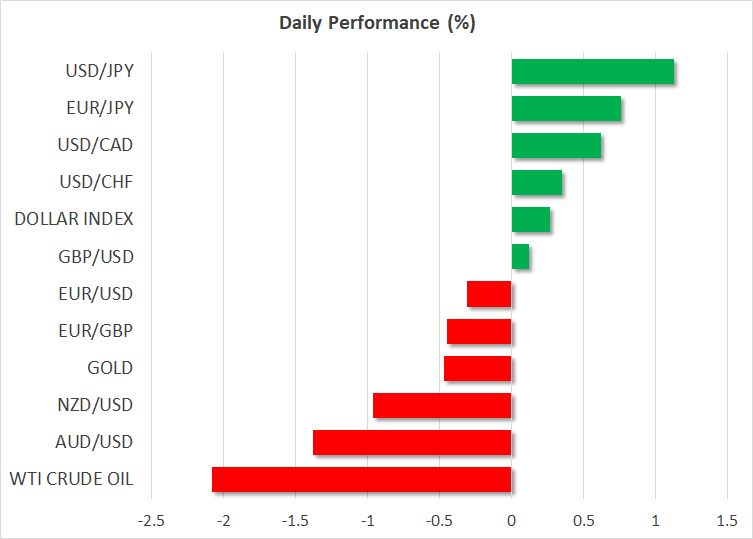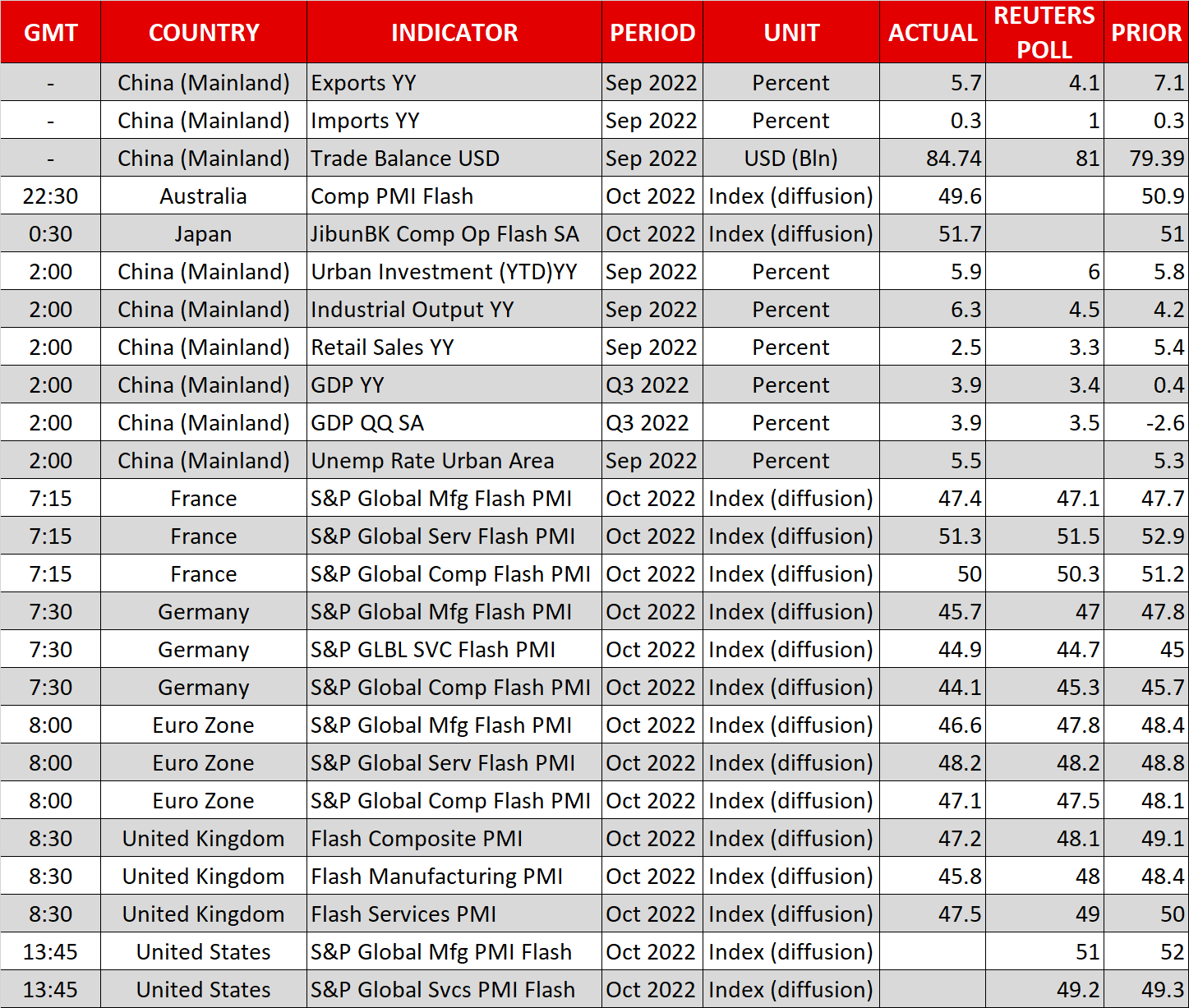Yen Intervention Fails, Politics Boosts Sterling
2022.10.24 11:56
[ad_1]
- Japanese authorities suspected of stepping into FX market again
- Sterling climbs as Sunak takes political lead, Fed lifts Wall Street
- Euro unfazed after European PMIs, China shows signs of stress

FX intervention
Japanese authorities most likely conducted another operation in the currency market, deploying their vast firepower of FX reserves to shore up the sinking yen. Like a bolt out of the blue, the yen stormed higher last week and then again on Monday, with the moves being so sharp that intervention was inevitably behind them.
The twist is that once again, intervention was unsuccessful as dollar/yen has already recovered most of its losses. While the excessive volatility might have chased some speculators away, the underlying force of interest rate differentials that fueled this entire trend is still at full power.
Solo intervention merely delays the inevitable – it is a costly way of slowing the bleeding in a currency, not a strategy for trend reversals. It took dollar/yen around two weeks to capture new highs after the last intervention episode and it might be a similar affair this time, as interest rate dynamics haven’t changed.
On Friday, the spotlight will turn to the Bank of Japan meeting. Although inflation has fired up and is running at 3%, wage growth and inflation expectations remain muted, reinforcing the view that there isn’t much domestic inflation. Coupled with the BoJ’s decision to defend its yield ceiling last week, a policy shift seems unlikely, keeping the yen hostage to any moves in foreign yields and the picture gloomy overall.
Sterling jumps, euro unfazed
In the UK, politics is front and center after former prime minister Boris Johnson dropped out of the Conservative leadership race, leaving his former chancellor Rishi Sunak as the frontrunner to become the country’s next leader. The prospect of a Sunak government came as music to the ears of the British pound, which opened the week with a gap higher on hopes that fiscal discipline will return to No 10.
After all, Sunak has displayed sound economic instincts, rolling out the furlough scheme while also penciling in tax increases to plug the hole in public finances. He could be confirmed as prime minister as early as today, allowing sterling to put the entire budget debacle behind it and realign with its traditional drivers – monetary policy and global risk sentiment.
Staying in Europe, the latest business surveys highlighted recession risks. Companies are turning defensive as demand is falling sharply, putting the Eurozone economy on a contractionary trajectory. On the bright side, European gas prices have declined dramatically lately, so any recession won’t be as deep as investors initially feared. This allows scope for a relief move in the euro, in case the ECB sounds a hawkish note on Thursday.
Wall Street climbs, Chinese stocks slide
Another round of speculation about a Fed pivot injected some life back into US stock markets on Friday. Wall Street ripped higher by almost 2.4% after media reports suggested the Fed might slow down the pace of rate increases in December. This view was echoed by the San Francisco Fed chief, who pushed back against the notion that rates will rise beyond 5%.
Overall, the risk-reward profile for equities remains unfavorable. Real US yields have gone through the roof lately, which will eventually drain the oxygen from riskier assets as capital flows back into risk-free investments. With valuations still expensive and the risk of negative earnings revisions intensifying as the economic data pulse slows, the path of least resistance likely remains to the downside.
Finally in China, stock markets fell sharply on Monday after Xi Jinping tightened his grip on power. Xi appointed some of his most loyal allies in leadership positions, fueling concerns that the economic, regulatory, and geopolitical trends that have alarmed investors will persist. The latest batch of data didn’t help either. While GDP growth was solid, the spike in unemployment is an ominous sign as China battles a vicious property sector crisis.
[ad_2]
Source link








